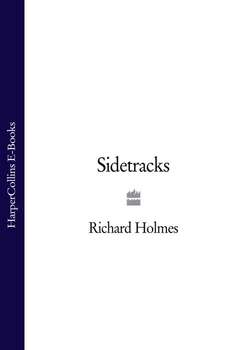Читать книгу Sidetracks - Richard Holmes - Страница 7
INTRODUCTION
ОглавлениеLOOK BACK, and the past becomes a story. The fixed shadowy shapes begin to move again, and make new patterns in the memory, some familiar, some strange. I now see that this early essay strongly reflects my own first three years in London, where I arrived from Cambridge in summer 1967, aged twenty-one. Prospects were fair, work was easy to find in those days, and I had a good circle of friends. Yet the truth was that I felt suicidally lonely and depressed for much of the time. This was not particularly unusual for a young man coming to the big city. But I was mad to write, I felt I was nothing unless I could write. The inky demon drove me night and day, and I simply could not see how he (or she) could be appeased. I am not sure that this feeling has ever left me. I think all writers, of whatever kind, must have such a demon. I believe the demon follows them in the street and ends up sitting on their graves.
I started, by luck, with a little freelance journalism. As this was the late Sixties, I was soon commissioned to write a book called ‘Prodigy'. I think it was meant to be about poets, film stars and pop stars who died young. (It was the John Keats – James Dean – Janis Joplin thing.) Instead I became fascinated by the eighteenth-century poet Thomas Chatterton, and he led me back into the world of English Romanticism, and in a sense saved my life by giving it a new dimension. I took my first deliberate ‘footstepping’ trip down to Bristol, where he was born, and for the first time examined original manuscripts in London, where he died. I discovered the peculiar magic of historical research, and experienced that sense of imaginative displacement which intoxicates all writers. I began to live what is, I suppose, the conscious double-life of the biographer, with one foot in the present and the other continually in the past. Suddenly I had found that space in which it became possible to write: my own version of Virginia Woolf’s ‘room of one’s own'. The essay that emerged was taken by my friend Peter Janson-Smith to the publisher Jock Murray, who astonished me by giving up half an entire issue of the Cornhill Magazine to it. (The magazine closed shortly thereafter.)
One of the strangest things about the essay is that it contains – in walk-on parts – almost everybody that I have subsequently written about over the next thirty years. So I now see it, in a way, as a kind of audition for my vocation as a biographer. Not me auditioning them, but vice versa: my waiting subjects checking me out. The illogical feeling that your subjects somehow choose you is common to many biographers.
It contains many other premonitions too, some of which I am still discovering. The path to my book on Shelley, though then invisible, has now become obvious to me. The emphasis on solitude, the extreme sense of dislocation and isolation from a normal social world, which is one enduring version of the Romantic sensibility (though capable of both comic and tragic expression), was strongly in the ascendant, and would remain with me for a long time to come. I can clearly catch a young man’s voice, impatient and unreasonable with the adult world (Walpole, Johnson) that holds back a fuller understanding. But whose is the voice? Empathy is the most powerful, the most necessary, and the most deceptive, of all biographical emotions. It is instructive to look back on it, subtly at work, throwing both light and shadow into city streets which were already for me partly real, and partly imagined. The insistent rhythm of the opening paragraph was repeated, unconsciously, fifteen years later in the opening paragraph of Footsteps. Both end with the keyword ‘eighteen', a retrospective declaration of Romantic youth. But above all in ‘Chatterton', so much concerned with the dead, I first glimpsed the people and the period in history which were to become most dazzlingly alive for me.
